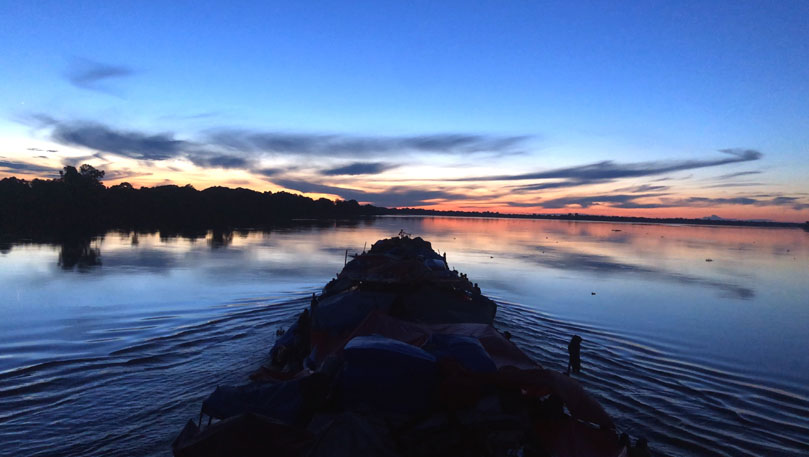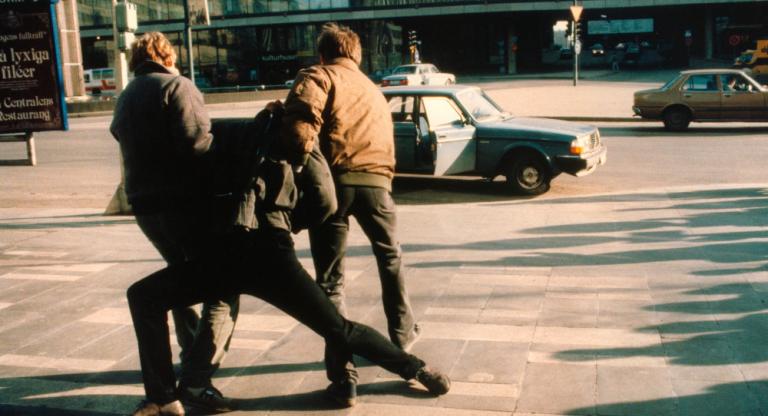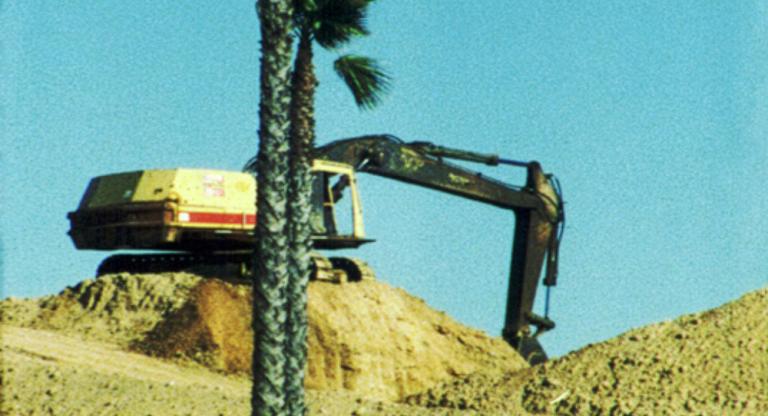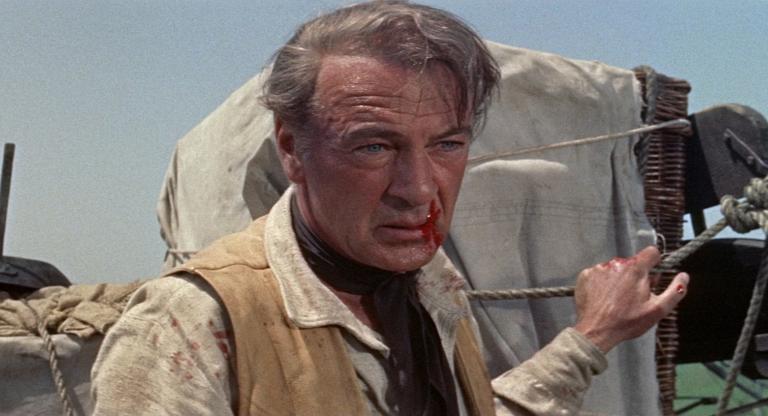The first words uttered in Dieudo Hamadi’s new documentary Downstream to Kinshasa are “blood money.” Typically used in the pejorative, the phrase is loudly and proudly embraced by a theater troupe — listed in the film’s closing credits as “les Zombies de Kisangani” — calling for reparations from the government of their homeland, the Democratic Republic of the Congo, having suffered major injuries in the Six-Day War of 2000. That conflict saw Rwandan and Ugandan forces explode over ten thousand mortar shells in a brief span of time in Kisangani, the filmmaker’s hometown. While the UN’s International Court of Justice later recognized Uganda as guilty of crimes against humanity, the Congolese government has done little to acknowledge the war or its long-lasting consequences, so Hamadi follows this ragtag group of civilian victims, many of whom lost arms or legs in the war, as they take their case downriver to the nation’s capital of Kinshasa — a weeks-long journey via boat, barely covered by tarp, that constitutes the film’s harrowing middle section. (The original title was En Route pour le Milliard, or “on the way to the billion”, referring to the dollar amount of compensation called for by the victims.)
Acclaimed by European festival programmers but essentially unknown in the States, Hamadi is one of the absolute sharpest and most interesting nonfiction filmmakers working right now. He is his own cameraman, operating on the ground in the tradition of Chris Marker or Patricio Guzmán; he has an intuitive skill for locating drama in real life, foregoing the bag of tricks that has become obligatory for “issue” documentaries today: sit-down interviews, podcast-like voiceover, syrupy music, instantly dated drone cinematography, nauseating montage. The conflicts wracking the DRC over the last quarter-century are widely recognized as the deadliest since World War II, fought over access to rare earth minerals such as lithium — needed to make atomic weapons in the Cold War and, more recently, the chips in our omnipresent smartphone technology. But you do not need to know the Congo’s tortured colonial or postcolonial history to be engrossed in Hamadi’s film, in which disabled and handicapped activists must cope with inadequate replacement limbs and risk their lives to protest an uncaring political managerial class, all the while defending themselves against second-class treatment from other Congolese. As I understand it, Hamadi’s aim is not to foreground the Six-Day War for a new global audience so much as to bring a measure of dignity to the “zombies” — whose activism serves to testify they are still alive and, indeed, human.
Downstream to Kinshasa is available to rent in Screen Slate’s virtual cinema. Members receive $2 off.



